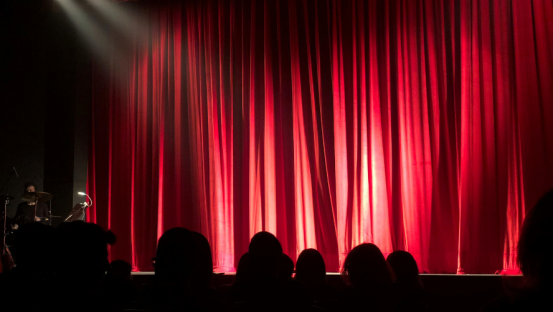You Are What You Eat: How to Prepare for Public Speaking

Public speaking continues to be one of the most common fears. If you too are nervous about the prospect, then you’ll want to do whatever you can to be as relaxed as possible before your next big speech. While practice is key, here’s something you may not have given as much thought to: so too is a good diet. It’s true – the food you consume the night before and the morning of your presentation can make a major difference in how nervous, sluggish, motivated, or excited you will be when the big moment approaches.
To help you out, we have composed this guide of the best and worst foods to consume before your next speech so you can be on top of your game and make a great impression.
Calming Your Nerves
One of the biggest reasons you may be afraid to give a big speech is that you know how nervous you get in front of crowds. Before even turning to food, it is important to remember that even though you think you are very shaky up there behind the podium, the chances are good that the audience can’t tell. Also, practicing your speech in front of a mirror can also give you confidence because you can see your movements in real-time and revise as necessary
But let’s take a look at your diet and how to avoid food products that can make you feel more nervous than you already are:

Drinking too much coffee can have a major impact on your nerves. It is wise to drink very little coffee the night before and no coffee at all on the morning of your presentation. The reason is that the active ingredient in coffee is caffeine, which blocks the chemicals in your brain that make you feel tired, and because of this, your nervous system is triggered and you become flooded with adrenaline. This stimulative process can make you shaky and drastically increase your heart rate.
You should also avoid the urge to drink alcohol to “take the edge off” your nerves. Rather than calming your nerves, alcoholic beverages can negatively affect your breathing, speaking, and worst of all, your memory, which you will need to recite your speech. Instead, try foods like almonds, which improve the functioning of your nerve endings, or salmon, which is loaded with omega-3 fatty acids that help to reduce stress.
Energy And Comfort
Once you get in touch with your body and calm your nerves a little, you will want to get comfortable while still retaining the right amount of energy so you can really drive your points home during your speech. Certain foods can make you feel sluggish and can impact your motivation to speak. For instance, avoid any fast food on the day of your speech as many of those meals include trans fats, which can make you feel sluggish and unmotivated. Consider opting for a vegetarian meal delivered to maintain vitality without compromising focus.

Other foods that can make you feel sluggish include potato chips, artificially sweetened snacks, and chocolate, which, like coffee, will initially give you energy but will inevitably lead to a crash. Instead, go for foods that will give you the proper amount of good energy, like eggs, yogurt, and decaffeinated green tea. If you still feel tired, consider engaging in some light exercise like riding an exercise bike to give you the natural energy that will leave you feeling great.
Making the right preparations to be comfortable for your speech is especially important if you are having to deal with a medical condition like GERD (Gastroesophageal Reflux Disease). Symptoms of GERD can include chest pains, heartburn, and nausea, and you don’t want to experience any of those during your speech. To reduce the effects of GERD and similar conditions, make changes to your lifestyle before and leading up to the presentation, including eating smaller meals and refraining from smoking or consuming alcohol.
Food Can Affect Your Voice
Finally, the food you eat can also affect the strength and clarity of your voice, which is essential if you want to make a positive impression during your big talk. An unhealthy diet leading up to your speech can negatively affect your voice, with coffee and citrus being major culprits, as they can both dry out your throat. Also, be cautious with granola bars, as they can irritate your throat, and soda, which can aggravate your vocal cords.
The way your voice sounds can also be affected by the amount of phlegm you have in your throat. While mucus is essential for swallowing, too much phlegm will irritate your vocal cords and create the need to constantly clear your throat. Several foods are known for being responsible for excess phlegm, especially dairy products, which contain molecules that stimulate phlegm production. Alcohol is, once again, a bad idea because it triggers the blood vessels in your nose which can increase blood flow and lead to congestion.

If you are having a problem with phlegm, then try food that reduces these effects. Start with apples because they contain a substance called pectin that promotes the movement of saliva. You should also drink water before your speech because it will keep you hydrated and also help to improve your concentration and comfort. Bring a bottle of water up on stage with you and don’t be frightened to take a sip whenever you need it. Your audience will wait.
As you can see, while you may be nervous about your big presentation, a healthy diet can help put you more at ease. Eat right today and give an amazing speech tomorrow.
Amanda Winstead is a writer focusing on many topics including business and professional development. Along with writing she enjoys traveling, reading, working out, and going to concerts. If you want to follow her writing journey, or even just say hi you can find her on Twitter.





